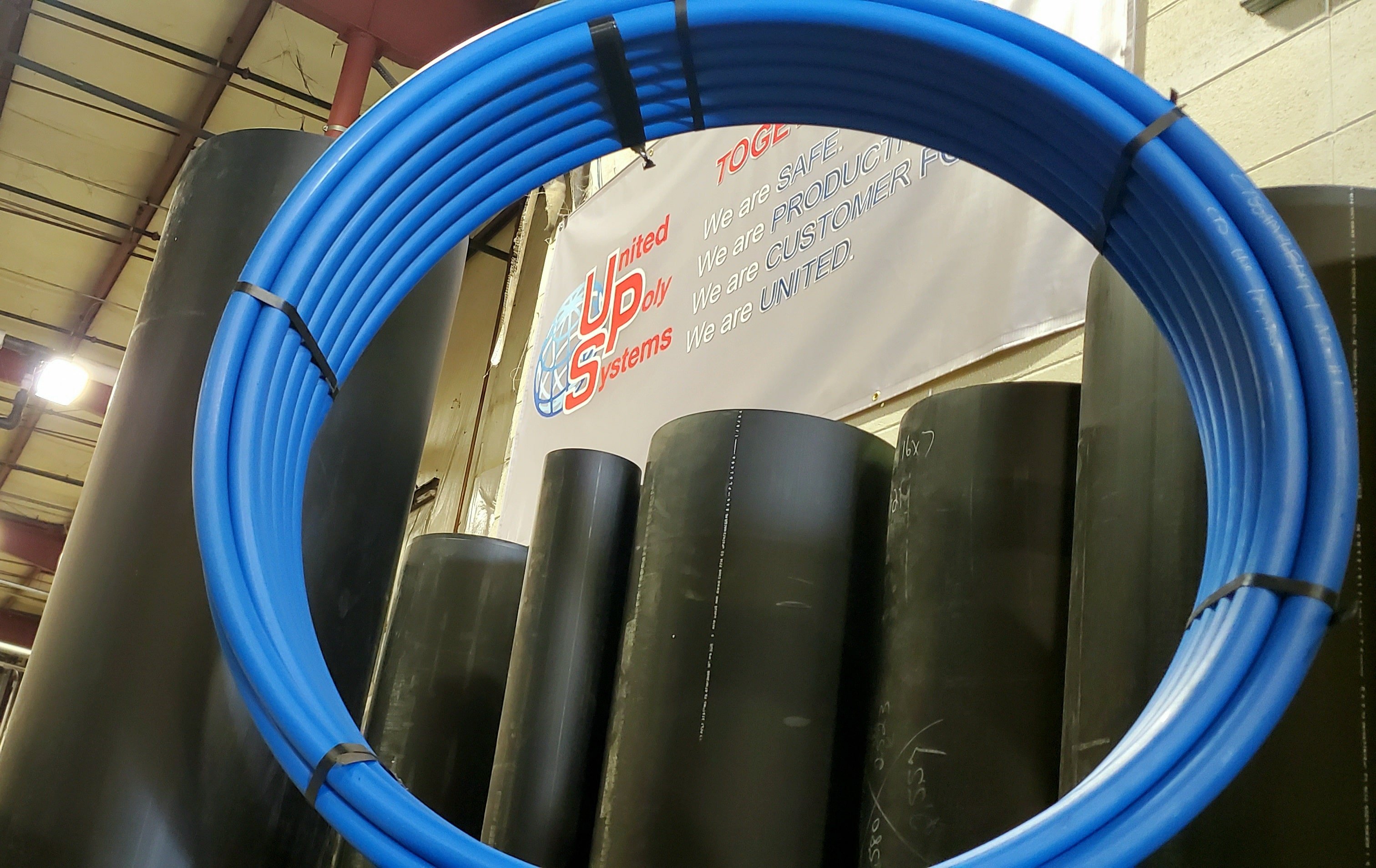American Plastics HDPE Pipe for Oilfield: Efficiency in Harsh Environments
Wiki Article
Comprehending the Key Conveniences of HDPE Pipe for Water and Wastewater Management
Making use of HDPE pipe in water and wastewater administration provides numerous advantages that merit consideration. Its phenomenal resilience and long life-span make it a recommended option for many jobs. In addition, the material's resistance to corrosion and chemical damages improves its integrity in various settings. Nevertheless, the benefits extend past just long life and resistance. Discovering its cost-effectiveness and environmental impact exposes a lot more engaging reasons for its prevalent fostering in modern frameworkOutstanding Resilience and Longevity

HDPE pipe sticks out for its extraordinary toughness and longevity, making it a favored selection in water administration systems. Constructed from high-density polyethylene, these pipes can withstand considerable pressure and tension, guaranteeing reliable efficiency in time. Their robust nature permits them to withstand extreme environmental problems, consisting of temperature fluctuations and soil movements, which can trigger various other materials to fall short.
The life-span of HDPE pipes often exceeds half a century, offering a cost-effective solution for towns and industries alike. In addition, the material's lightweight properties simplify setup, reducing labor expenses and durations. This sturdiness reduces the need for regular repair services or substitutes, better improving its financial appeal.
In water management applications, the integrity of HDPE pipes means less disturbances and enhanced service connection, making them essential to lasting framework advancement. The combination of toughness and durability solidifies HDPE's duty as a foundation in efficient water management options.

Resistance to Rust and Chemical Damage
While several materials yield to rust and chemical damage over time, HDPE pipes exhibit remarkable resistance, making them optimal for various water management applications. This durability stems from the molecular framework of high-density polyethylene, which is inherently non-reactive and does not corrode like metals or weaken from direct exposure to severe chemicals. Therefore, HDPE is highly effective in atmospheres with aggressive materials, such as wastewater systems that may consist of acids, bases, and organic solvents.
In addition, HDPE pipes can hold up against ecological elements such as soil acidity and saline problems, even more enhancing their viability for diverse applications (Texas hdpe pipe manufacturer). Their capacity to preserve architectural integrity over time decreases the danger of leaks and failures, which is crucial in making sure the safety and integrity of water circulation and wastewater administration systems. Subsequently, the resistance to deterioration and chemical damages significantly adds to the general performance and longevity of HDPE piping remedies
Cost-Effectiveness and Economic Advantages
When taking into consideration the financial effects of water monitoring systems, the cost-effectiveness of HDPE pipelines becomes evident. These pipes use lower installation and upkeep prices compared to traditional products like steel or concrete. Their light-weight nature streamlines transport and installment, resulting in reduced labor expenses. Additionally, HDPE pipelines display a lengthy life expectancy, typically exceeding half a century, which converts to less substitutes and long-lasting cost savings.Furthermore, the resistance of HDPE to deterioration and chemical damage lessens i thought about this the requirement for costly repair services and substitutes. The pipelines likewise sustain efficient water flow, decreasing power expenses related to pumping systems. By mitigating leaks and water loss, HDPE pipelines contribute to significant economic benefits for municipalities and markets alike. In general, the preliminary investment in HDPE piping can generate significant economic returns over the life expectancy of the water monitoring system, making it a sensible choice for sustainable facilities growth.
Environmental Sustainability and Minimized Effect

Convenience and Flexibility in Installment
Due to their one-of-a-kind residential properties, HDPE pipelines supply amazing convenience and flexibility in installment, making them suitable for a variety of applications. Their lightweight nature permits simpler handling and transport, decreasing labor prices and installment time. HDPE pipes can be bent and shaped to fit various terrains and project requirements, which is specifically advantageous in testing atmospheres.Furthermore, their resistance to deterioration and chemical damage allows for setup in varied settings without the need for specialized protective finishes. The capability to fuse joints develops a continual, leak-free system, boosting the general honesty and dependability of the installment. HDPE's versatility additionally accommodates ground motion, decreasing the risk of damages in areas susceptible to changing soil. Overall, these qualities make HDPE pipelines not just functional yet additionally a favored choice for water and wastewater monitoring systems.
Regularly Asked Inquiries
Just How Does HDPE Pipe Contrast to PVC in Water Management Applications?
HDPE pipe uses exceptional adaptability, resistance to corrosion, and toughness compared to PVC. Its lighter weight promotes much easier installment, while its long life expectancy lowers substitute prices, making HDPE a favored selection in water monitoring applications.What Is the Lifespan of HDPE Pipeline Under Normal Problems?
Under click to read regular conditions, HDPE pipelines can have a life expectancy varying from 50 to 100 years. Their toughness and resistance to corrosion add to their lasting efficiency in different applications, making them a trustworthy option for facilities.Are HDPE Pipes Recyclable After Their Service Life?
Yes, HDPE pipes are recyclable after their life span. Pipe Supplier American Plastics Midland. They can be processed and repurposed right into brand-new products, considerably lowering environmental impact and promoting sustainability within the industry, making them an eco-friendly selection for piping servicesWhat Is the Setup Process for HDPE Pipeline?
The installation procedure for HDPE pipelines includes site preparation, trenching, pipeline combination or mechanical joining, backfilling, and pressure testing. Appropriate strategies ensure a long lasting and reliable system for transferring water and wastewater efficiently.Can HDPE Pipeline Be Made Use Of for Both Safe And Clean and Non-Potable Water Systems?
Yes, HDPE pipes can be used for both potable and non-potable water supply. Their flexibility, longevity, and resistance to deterioration make them useful source appropriate for different applications, guaranteeing safe and reliable transportation of water in various contexts.Report this wiki page